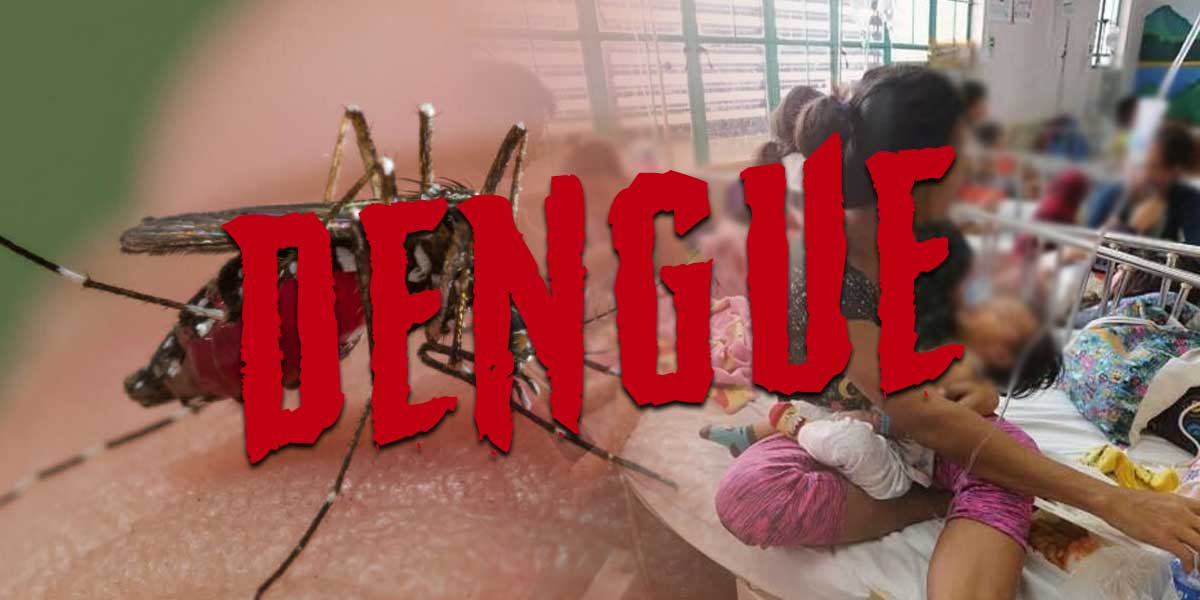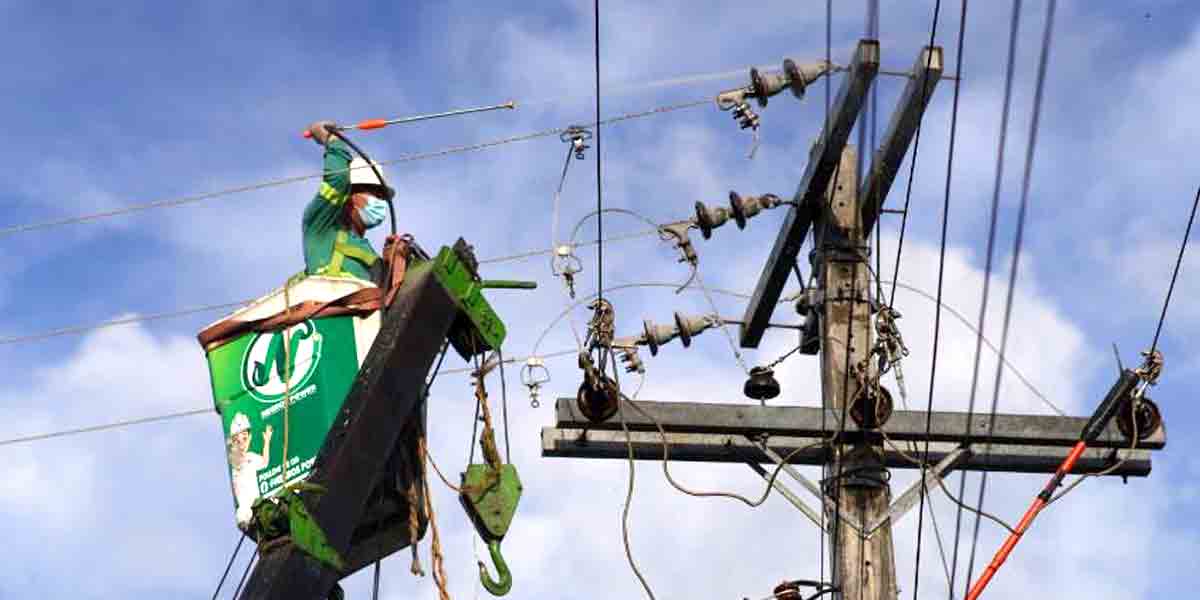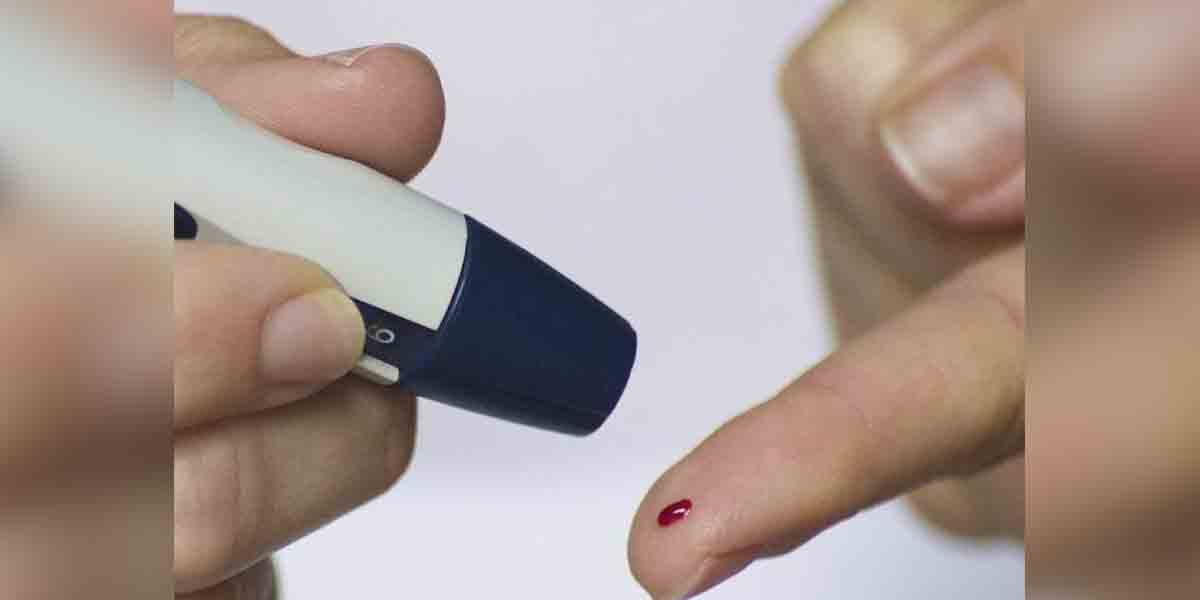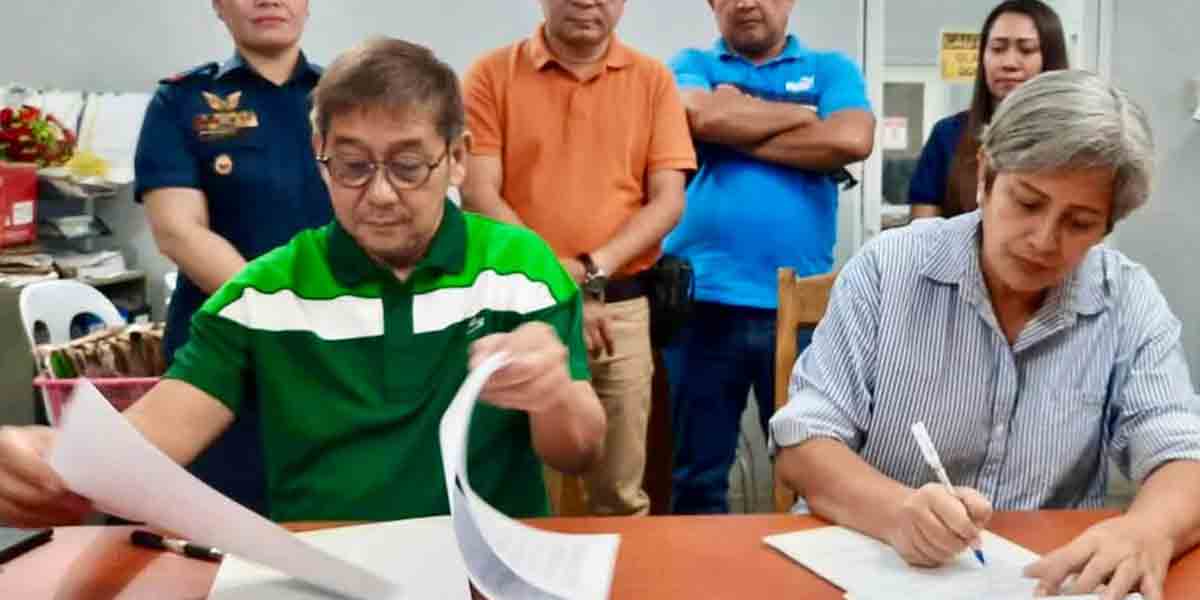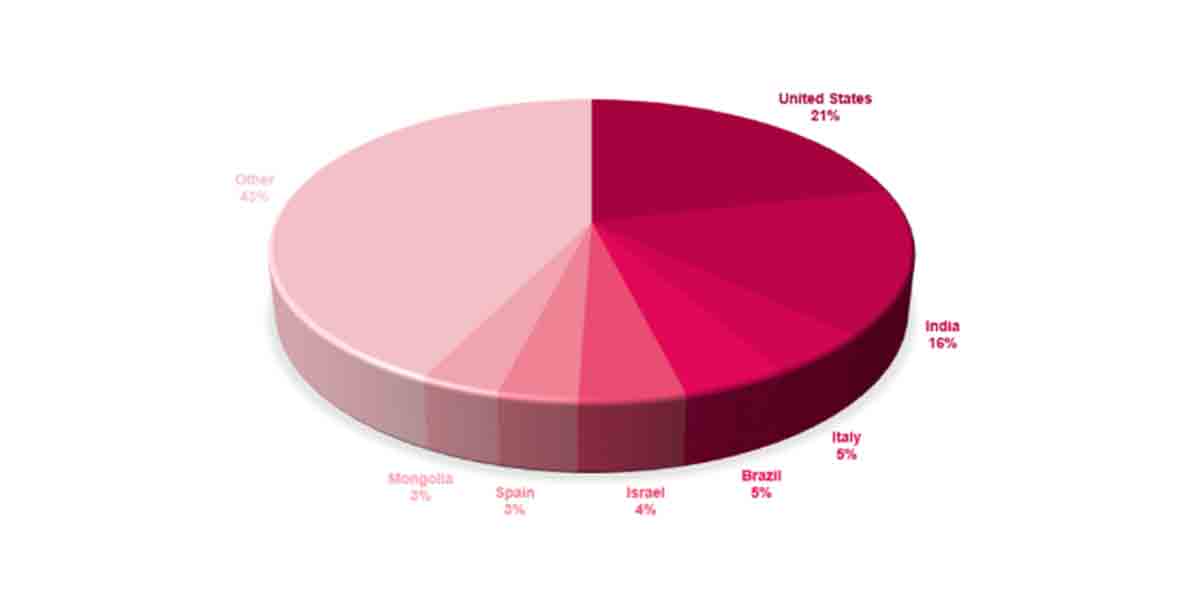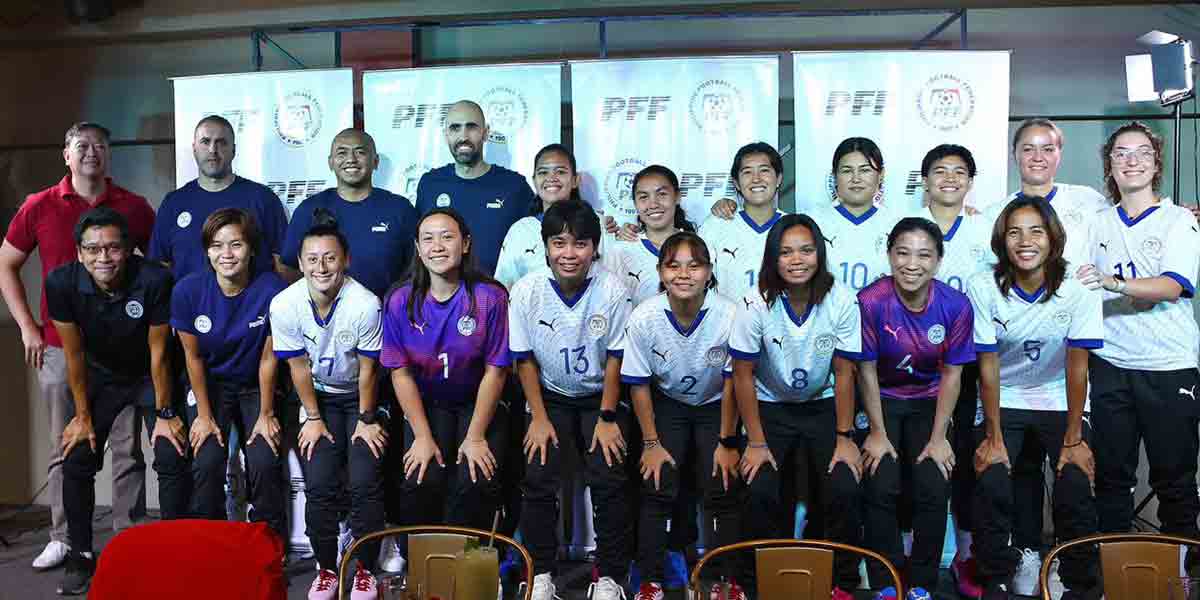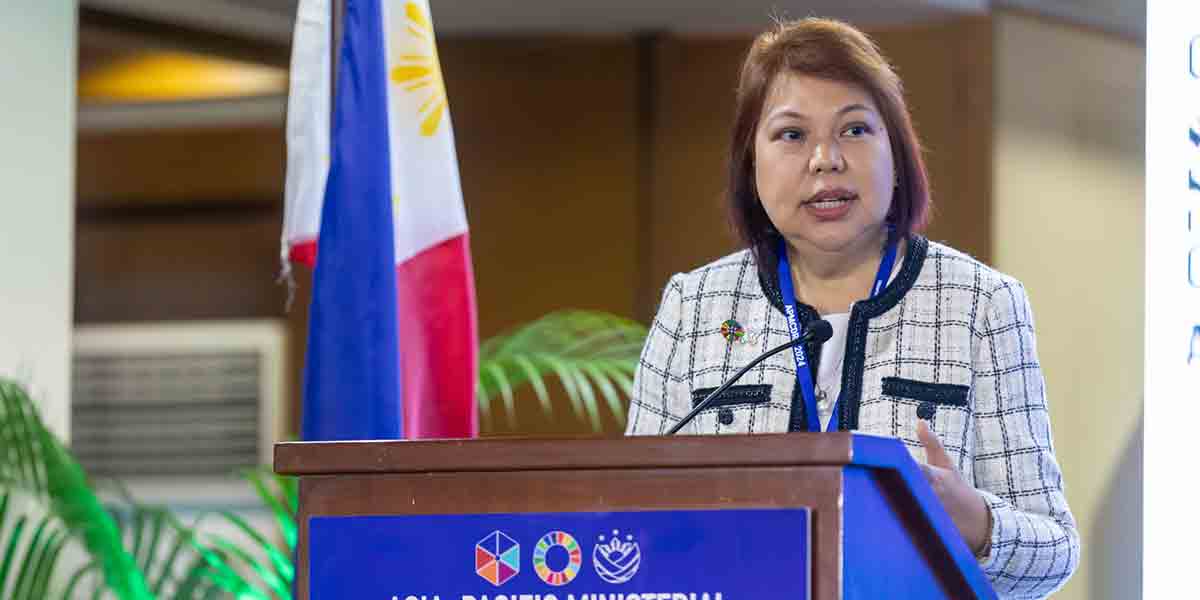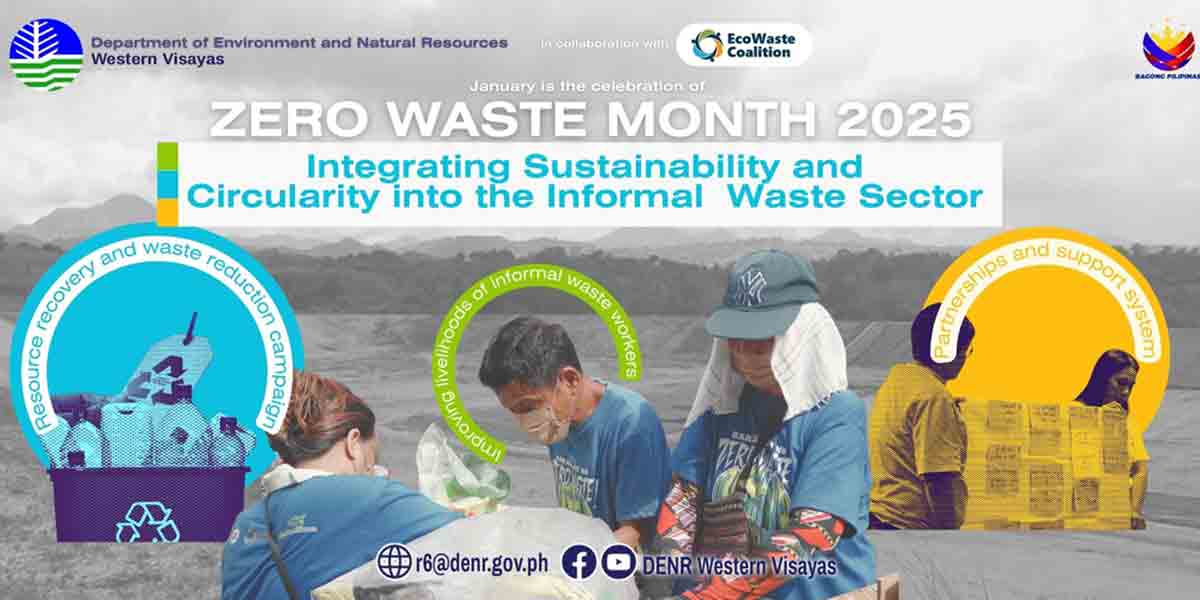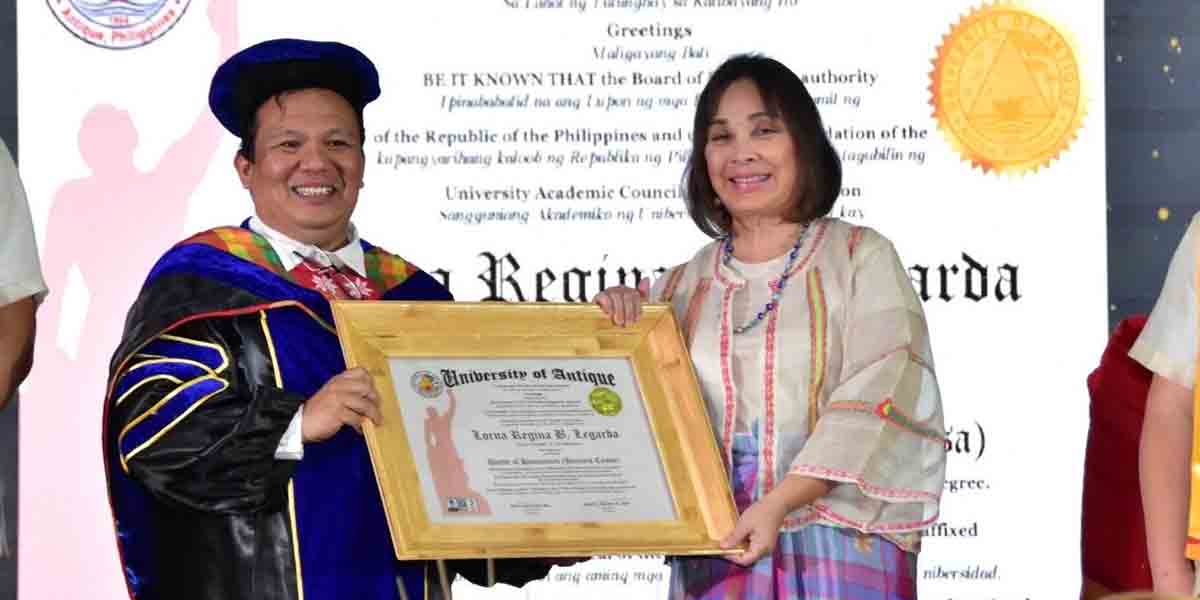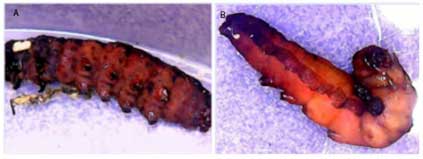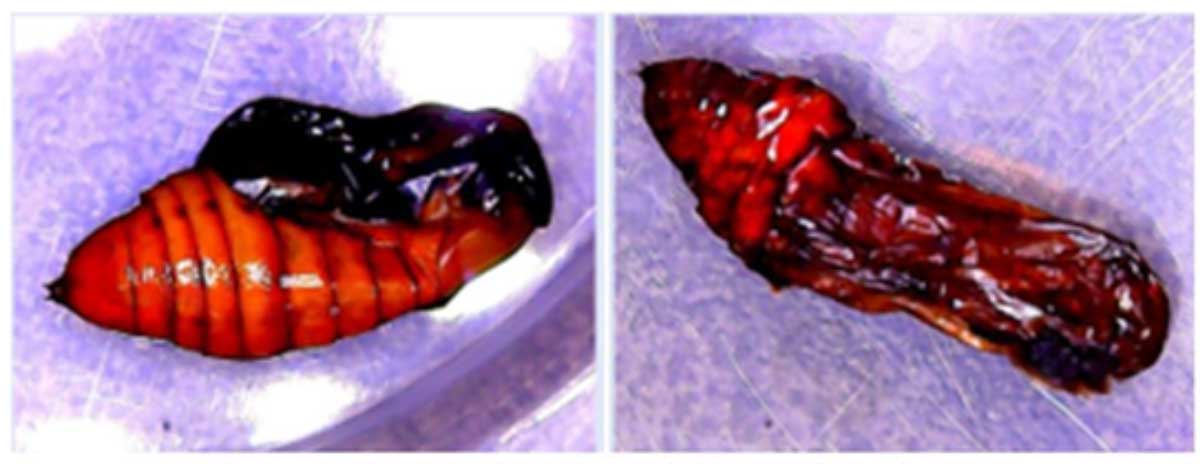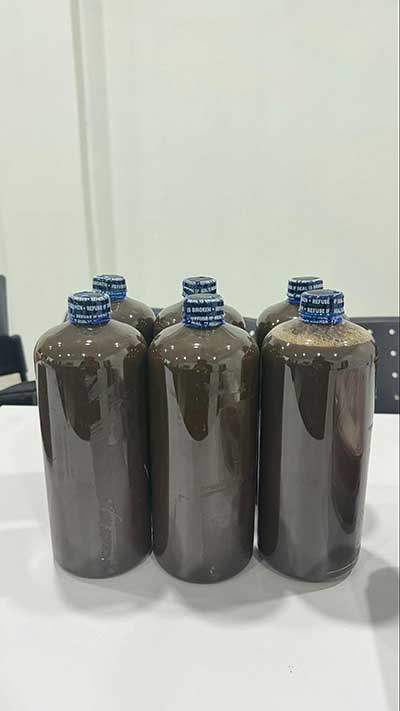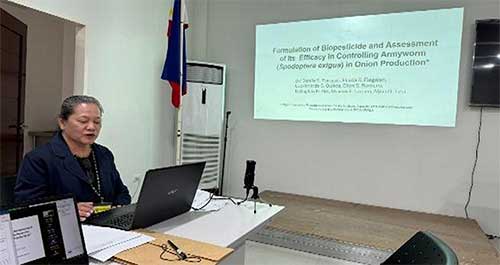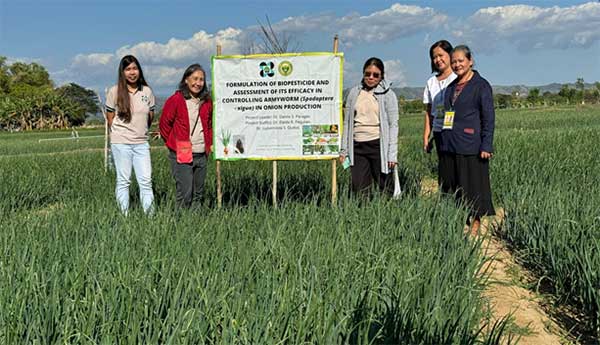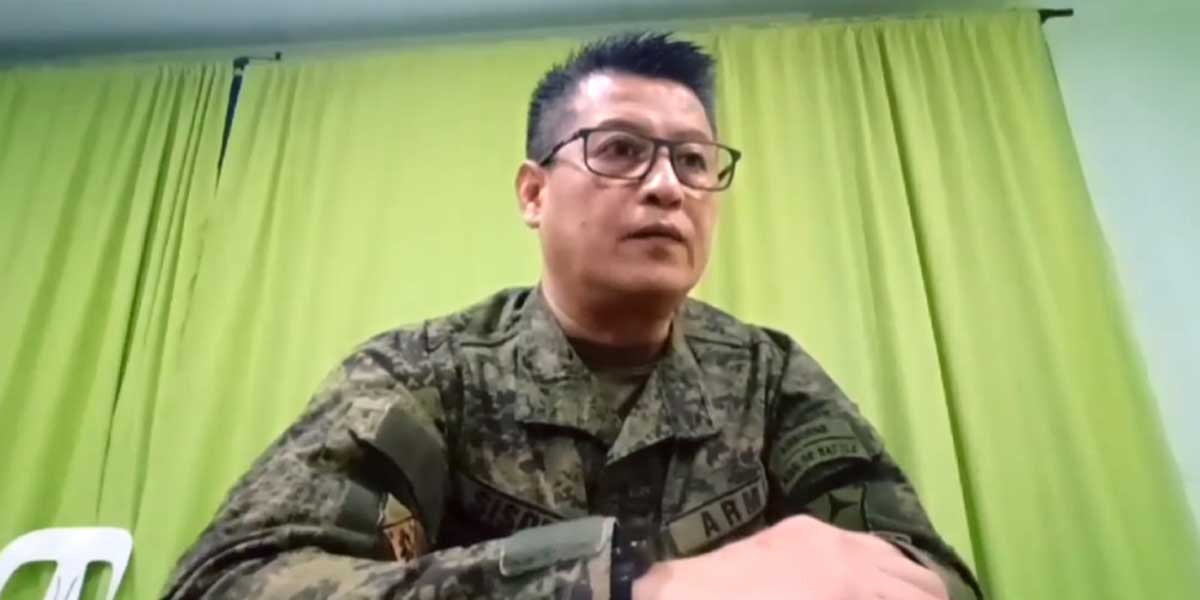A nanobiopesticide formulation developed by the Central Luzon State University (CLSU) demonstrated a 100% mortality rate for Armyworm larvae within just 48 hours after application.
This was reported by Project Leader Danila Paragas of CLSU, during the project review meeting and field monitoring and evaluation visit held in Nueva Ecija. The nanobiopesticide is an output of a research project funded by the Philippine Council for Agriculture, Aquatic and Natural Resources Research and Development of the Department of Science and Technology (DOST-PCAARRD).
Dr. Paragas said that the final formulation resulted from experimenting with more than 11 plant extracts and nanoparticles. Laboratory trials showed that the contact toxicity tests of the nanobiopesticide treatments resulted in 90% mortality rate for 1st instar larvae and 100% mortality rate for 2nd to 3rd instar larvae within 48 hours of exposure.
Armyworms, commonly known as “Harabas,” attack onion from its leaves down to the bulb. From its larval to adult growth stages, armyworms eat onion leaves and bulbs usually in the late cooler hours of the night or early morning, at unprecedented rates.
A hectare of onion requires only 1.2 liters (L) of nanobiopesticide, or 200 milliliters (mL) per 16 L knapsack sprayer. This application rate is lower compared with the industry’s average chemical application rates, which typically range from 1.62 to 3.65 liters per hectare.
Field experiments reveal the nanobiopesticide’s potential in eliminating armyworms and in increasing onion yield by 28.9%.
This technology would help decrease chemical pesticide application by 75–100%. It promises a more sustainable and environment-friendly strategy for managing pests of onion. (Thea Mariel N. Valdeavilla and Ofelia F. Domingo, DOST-PCAARRD S&T Media Services)

